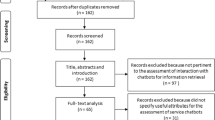Abstract
When setting up a meeting, meeting participants need to reach a mutual agreement to hold the meeting subject to their personal constraints and preferences. It is a time-consuming process, and a variety of calendaring applications are in use assisting users to schedule meetings. Software applications failed to overcome the constraints of the traditional-scheduling process and works as a supporting tool for managing meeting information. One of the main constraints in automated scheduling is the unavailability of a standard structured communication protocol. In addition, automated scheduling requires other issues to be considered such as automated decision-making paradigm, negotiation strategy selection mechanism, etc. This paper proposes a personal meeting scheduling agent (PMSA) and a personal meeting scheduling protocol (PMSP). PMSP is embedded in the PMSA for handling bilateral and multilateral negotiations. PMSA is designed using model-based, goal-based methodology. Additionally, PMSP is designed following a structured negotiation protocol influenced by simultaneous response protocol. To evaluate all meeting invitations and to make decisions subject to users’ preferences, participants’ profiles, and the schedule availability, this paper utilizes the naïve Bayes model of maximum likelihood Estimation. The PMSP goal is to automatically make decisions and select the appropriate negotiation strategies to avoid or resolve possible meeting conflicts. To demonstrate the feasibility of the proposed PMSP, a simulation environment with experimental results is presented.









Similar content being viewed by others
References
Crawford E (2009) Learning to improve negotiation in semi-cooperative agreement problems, Ph.D. Thesis, Carnegie Mellon University, Pittsburgh, PA. Available: http://reports-archive.adm.cs.cmu.edu/anon/2009/CMU-CS-09-111.pdf
Masli M, Geyer W, Dugan C, Brownholtz B (2011) The design and usage of tentative events for time-based social coordination in the enterprise. In: International world wide web conference
BenHassine A, Ho TB (2007) An agent-based approach to solve dynamic meeting scheduling problems with preferences. Eng Appl Artif Intell 20:857–873
Crawford E, Veloso M (2007) An experts approach to strategy selection in multiagent meeting scheduling. Auton Agents Multi-Agent Syst 15:5–28
Lai TE (2007) Neural network preference learning approaches for improving agent-based meeting scheduling problems, M.Sc. Thesis, Universiti Putra, Malaysia. Available: http://psasir.upm.edu.my/5218/1/FSKTM_2007_19.pdf
Handel M, Herbsleb JD (2002) What is chat doing in the workplace? In: Proceedings of the 2002 ACM conference on computer supported cooperative work, New Orleans, Louisiana, USA, pp 1–10
Tang JC, Isaacs EA, Rua M (1994) Supporting distributed groups with a montage of lightweight interactions. In: Proceedings of the 1994 ACM conference on computer supported cooperative work, Chapel Hill, North Carolina, United States, pp 23–34
Berry PM, Gervasio M, Peintner B, Yorke-Smith N (2011) PTIME: personalized assistance for calendaring. ACM Trans Intell Syst Technol 2:40:1–40:22
Microsoft Corporation (2012) Microsoft Outlook. Microsoft [Online]. Accessed July 2012. Available: http://office.microsoft.com/en-us/outlook/
Microsoft Corporation (2012) Microsoft Exchange. Microsoft [Online]. Accessed July 2012. Available: http://www.microsoft.com/exchange/en-us/default.aspx/
Shakshuki E, Koo H, Benoit D, Silver D (2008) A distributed multi-agent meeting scheduler. J Comput Syst Sci 74:279–296
Ducheneaut N, Bellotti V (2001) E-mail as habitat: an exploration of embedded personal information management. Interactions 8:30–38
Modi PJ, Veloso M, Smith SF, Oh J (2004) CMRadar: a personal assistant agent for calendar management. In: Proceedings of the 19th national conference on artificial intelligence, San Jose, California, pp 1020–1021
Berres R, Oliveira E (1999) Automated distributed meeting scheduler. Faculdade de Engenharia, Universidade do Porto, NIAD&R-LIACC. Rua dos Bragas, 4099 Porto Codex, Portugal. Available: http://paginas.fe.up.pt/~eol/ADMS/adms.html
Sen S (1997) Developing an automated distributed meeting scheduler. IEEE Exp Intell Syst Appl 12:41–45
Smith RG (1980) The contract net protocol: high-level communication and control in a distributed problem solver. IEEE Trans Comput Comput 29:1104–1113
Yarow J (2011) 107,000,000,000,000. Business Insider, [Online]. Accessed July 2012. Available http://www.businessinsider.com/internet-statistics-2011-1
Shintani T, Ito T, Sycara K (2000) Multiple negotiations among agents for a distributed meeting scheduler. In: Proceedings of the fourth international conference on multiagent systems, pp 435–436
Modi PJ, Veloso M (2004) Multiagent meeting scheduling with rescheduling. In: Distributed Constraint Reasoning, (DCR), Toronto, Canada, pp 1–15
Wainer J, Ferreira PR, Constantino ER (2007) Scheduling meetings through multi-agent negotiations. Decis Support Syst 44:285–297
Jiang G, Wu L (2010) Research on method of multi-agent negotiation strategy selection. In: Proceedings of the 2010 fifth international multi-conference on computing in the global information technology. pp 110–115
Bartolini C, Preist C, Kuno H (2011) Requirements for automated negotiation. Hewlett-Packard Labs [Online]. Accessed July 2012. Available http://www.w3.org/2001/03/WSWS-popa/paper19
Kraus S (2001) Automated negotiation and decision making in multiagent environments. In: Carbonell JG, Siekmann J (eds) Lecture notes in computer science, vol 2086. Springer, Berlin, Heidelberg, pp 150–172
Rubinstein A (1982) Perfect equilibrium in a bargaining model. Econometrica 50:97–109
Keller F (2003) Connectionist and statistical language processing. [Online]. Accessed July 2012. Available http://www.coli.uni-saarland.de/~crocker/courses/learning/lecture1_2up.pdf
Diederich J, Iofciu T (2006) Finding communities of practice from user profiles based on folksonomies. In: Proceedings of the EC-TEL06 Workshops, Crete, Greece
Schiaffino S, Amandi A (2009) Intelligent user profiling. In: Bramer M (ed) Artificial intelligence: an international perspective. Lecture notes in computer science, vol 5640. Springer, Berlin, Heidelberg, pp 193–216
Sycara K, Dai T (2010) Agent reasoning in negotiation. In: Eden C, Kilgour M (eds) Handbook of group decision and negotiation. ISBN 978-90-481-9096-6, 2010
Bernardo JM (2003) Probability and statistics. Encyclopedia of life support systems. UNESCO, Oxford
Salamó M, Mccarthy K, Smyth B (2012) Generating recommendations for consensus negotiation in group personalization services. Pers Ubiquit Comput 16:597–610
Vazquez JI, Lopez D (2005) WebProfiles: a negotiation model for user awareness in personal area networks. In: Proceedings of the second annual international conference on mobile and ubiquitous systems: networking and services (MOBIQUITOUS). IEEE Computer Society, Washington, DC, USA, pp 373–383
Yim N, Choi S (2005) Strategic decision making support model on RTE approach from the BPM. In: Proceedings of the 7th international conference on electronic commerce, Xi’an, China, pp 400–407
Author information
Authors and Affiliations
Corresponding author
Rights and permissions
About this article
Cite this article
Shakshuki, E.M., Hossain, S.M.M. A personal meeting scheduling agent. Pers Ubiquit Comput 18, 909–922 (2014). https://doi.org/10.1007/s00779-013-0695-6
Received:
Accepted:
Published:
Issue Date:
DOI: https://doi.org/10.1007/s00779-013-0695-6




